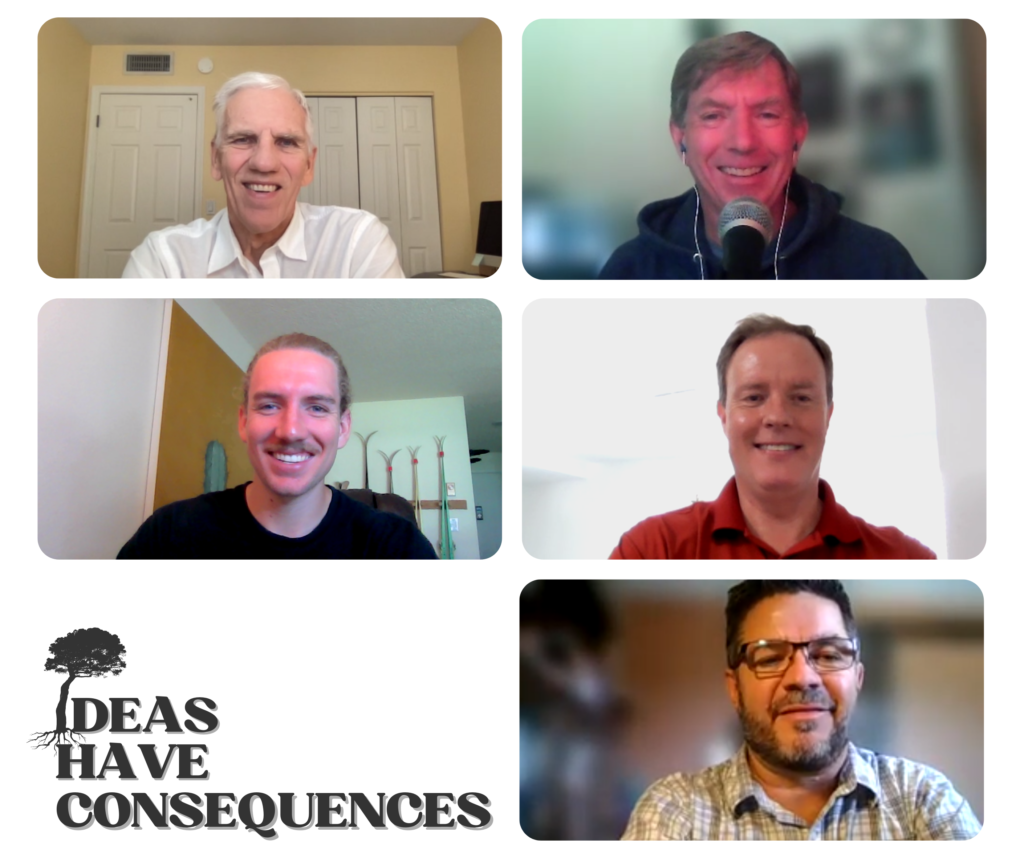At a Glance
The world we live in is becoming increasingly hostile to Christianity. Some Christians resolve this tension by trying to be “nice” to the world. They want the gospel to look attractive, and to keep relationships with nonbelievers peaceful so that they can share Jesus’ love. While these are important ideals; in practice, prioritizing our “winsome” reputation often leads to compromising the gospel. Join us this week as we discuss how to respond with truth, boldness, and love to a culture where the public opinion toward Christianity is negative.

What You'll Hear
Chapter 1: Winsome-Thirdway-ism (1:14)
- Owen Strachan and James Wood discuss this issue on their respective platforms.
- The “winsome thirdway” is to avoid getting polarized between the left and right in politics and instead offer a “third way” to be open and nice to the world.
- That only worked when the world was neutral towards Christians. Now the world is negative and that strategy is ineffective.
Chapter 2: Division (15:01)
- Trying to be “winsome” has led to siding with the culture on topics over the Bible.
- Trying to please everyone leads to division in the church.
- We should not pretend that evil is good to appease others.
Chapter 3: Practical Realities (24:16)
- We cannot write off everyone who disagrees with us.
- Sometimes friends still pull away, and we cannot control that.
Chapter 4: True Love (28:39)
- God’s “hard” love is better than the “soft” love of men.
- Speaking the truth is more loving than being accommodating.
- Truth and love are both essential.
Chapter 5: A Post-Christian culture (32:17)
- Looking to Christians who have lived in non-Christian cultures for a long time.
- We should distinguish between the wider culture and individual people.
- There are real consequences to speaking out, and we should not dismiss that.
Chapter 6: Historical Examples (49:43)
- German Christians during World War II did not speak up as much as they should have against Nazism. Are we doing the same?
- Churches that fought against the introduction of Darwinism 100 years ago have grown, and those that tolerated it shrank.
- No matter how “nice” you are, truth is offensive.
Chapter 7: Final Thoughts (58:07)
- You can’t just be “against” something, you need to have a foundation behind it that you are “for”.
- Ultimately, we know the end of the story, and God will win.
- Several Bible verses talk about not being conformed to the world.
Using the link above, you can read the transcript, listen along, and adjust the speed of the podcast while you listen.
Strive for peace with everyone, and for the holiness without which no one will see the Lord.
Hebrews 12:14
Go Deeper
The Antithesis
A Podcast by Owen Strachan
The Antithesis exists to clarify the difference between Christianity and every system, worldview, and religion. Armed with a big vision of God and a passion for divine grace, we help listeners to understand sound biblical doctrine and to distinguish it from ideologies that seek to take us captive (Colossians 2:8). Our burden is defensive but also offensive: we seek the destruction of intellectual and behavioral strongholds in order that we would taste the joy of a mind set free by Christ (2 Corinthians 10:3-6). Ultimately, The Antithesis seeks to aid in theological discipleship; our goal is to set the heart and mind on fire for God, and to stand immoveable in a chaotic and fallen realm.
How I Evolved on Tim Keller
An Article by James Wood
A critique of Tim Keller’s “Third Way-ism” that, while successful in the past, no longer works in today’s culture.
How I Evolved on Tim Keller: A Follow-Up (Official Video Essay)
A Video by James Wood
James Wood, associate editor at First Things, responds to criticisms of his much discussed original essay “How I Evolved on Tim Keller.”
Quotes
“We’re called as Christians to be unified and to demonstrate love, respect, and reasonableness. Those are very important things. There are very clear biblical commands to us about that, including all the way to loving our enemies. But what’s not really talked about is, unity in what? What are we standing in unity towards and for?” John (12:29)
“It seems like thirdway-ism is really elevating the process more than the “product” — the product of truth, the gospel.” John (13:48)
“I think this idea that there is good, there is truth in lots of things and we need to find the good and true, that is right. You could say that. But then you have to ask yourself, where are the lines? We’ve all got lines on this. Can we find some good in Nazism or in Islam? Maybe there could be some truth in there. But at some point, it’s not helpful to sit there and go, ‘Okay, I’m gonna find the good, find the true.’ It needs to be called out as evil and needs to be firmly resisted.” Scott (22:04)
“We should always look for common ground, but not at the expense of blurring the truth that we want to convey.” John (28:46)
“If we identify love as an emotion, or a feeling of affection, or some warmth that I have towards that person, then we’re always going to be conflicted between love and truth. But if our devotion is to that person becoming who God made them to be, I can be very strong with the person I love, and still very, very loving.” Dwight (43:22)
“You see Jesus being very gentle towards people who are in sin. I’m thinking of the woman caught in adultery, He was very gentle. He still spoke the truth there. He said, go and sin no more, but he didn’t judge her. And I think partly it’s because he could see their heart. There was a sense of humility or brokenness, right? And to the person who is in that place, gentleness is really appropriate in that context. However, it’s different for the person who is prideful or really militant in their rebellion against God. I don’t think Jesus was quite as gentle with those people. He was pretty hard with them. So context is important.” Scott (44:54)
“It’s not love versus truth, it’s love and truth.” John (46:26)
“Because we look back at the Christians in Germany during the rise of Nazism, we kind of criticize them, don’t we? It’s like, gosh, they should have spoken up, right? They should have done more. Well, what about us?” Scott (52:23)
“But the content of gospel truth is rock solid, yesterday, today, and tomorrow. So our great hope isn’t all of us, no matter how hard the negative world seems. We have assurance. We know the end and the outcome of all of this.” John (1:01:56)
“Remember that we’re not fighting against flesh and blood here, if we ever start thinking that we are, we are immediately going to lose love, right away,” Luke (1:07:01)





